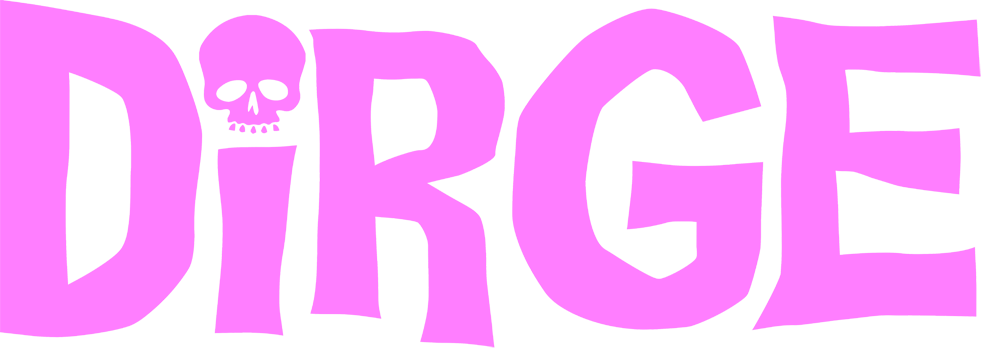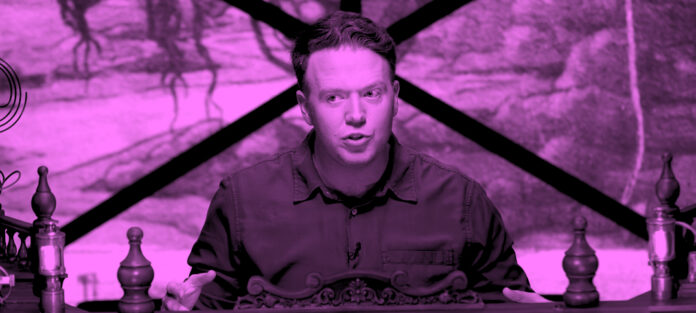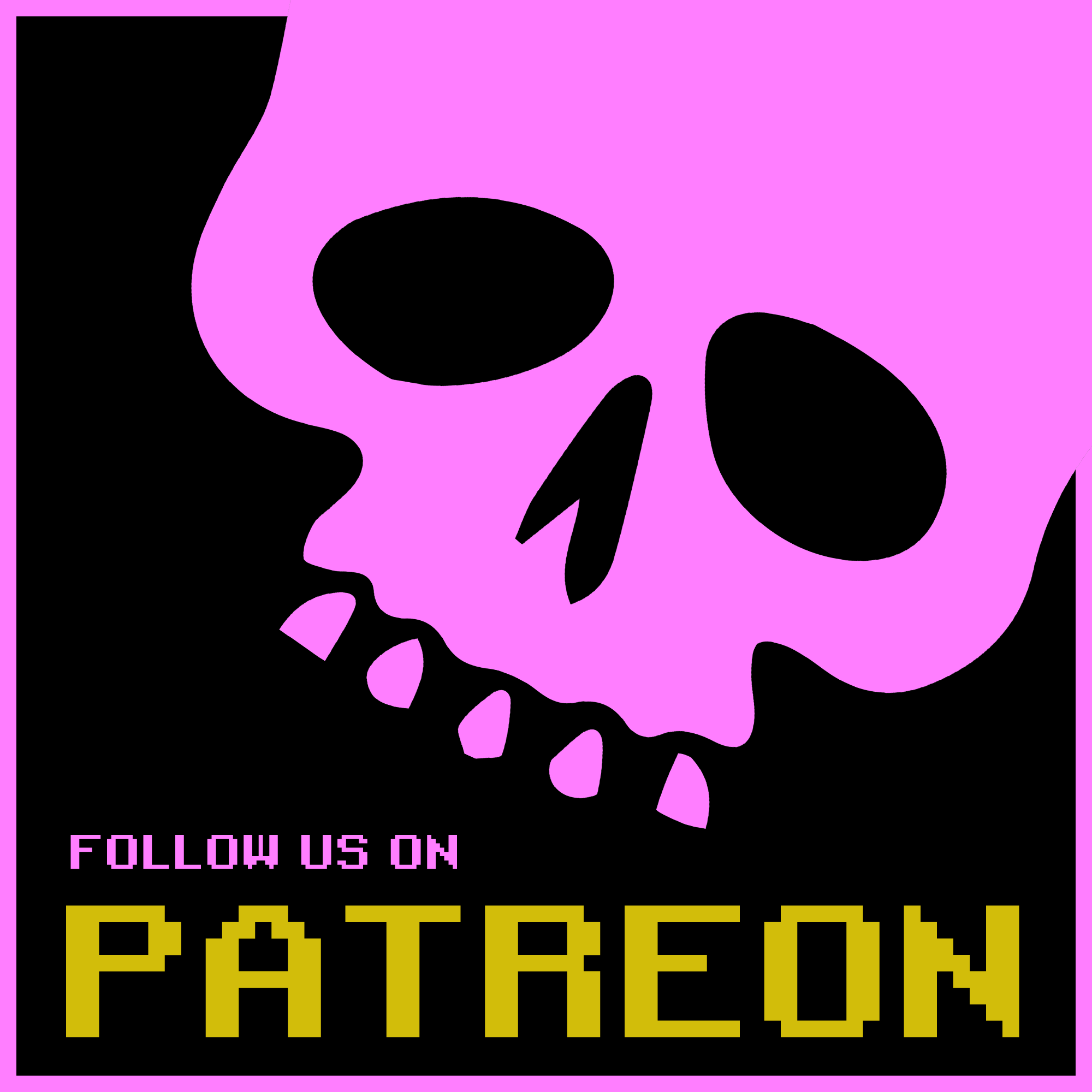They’re All Gonna Laugh At You
This is like a full-time job.
I was probably 18 or 19 when that queasy thought first dawned on me. I was running summer sessions of Dungeons & Dragons (AD&D Second Edition, to be specific) on the kind of untenable near-daily schedule that only the very young and largely irresponsible can aspire to.
Of course, no one was forcing me to run the game at an unreasonable pace — we all just loved it that much. The Dungeon Master, the person who portrays everyone and everything in the world (with the exception of the players’ characters), roleplays all the non-player characters, and functions as referee, kindergarten teacher, and therapist. It is a grueling, and often thankless job.
I was no stranger to hard work, having been employed since the age of 15 in the kind of brutal, demeaning jobs that 15-year-olds can get. My first job was cooking at Waffle House, which gave me both breakfast food and melee combat skills I still enjoy well into middle age.
Most of my rotating cast of 6-8 players worked at a local movie theater – the Cadillac of cush jobs for people our age – but due to a sleep disorder and the constant demands of creative output, I needed something more flexible. As our game grew to swallow all of my free time, I floated the idea that maybe everyone could kick in $10 a week for our game.
After all, everyone was employed full-time, and at a place where customers regularly paid $6 for two hours of passive entertainment. We were easily playing 20 hours a week with full production – maps, minis, lights, music, voices. I supplied all of it.
They laughed. Of course they laughed. Everyone was willing to play 20 hours a week, sure, but the idea of paying me (at a rate of $4/hour) for something I enjoyed? Absurd.
I sheepishly reframed that it was to, you know, help cover the cost of new books and map printing and minis, and paints, and and and…
The D&D group I’d been playing with since middle school immediately unionized and, in a grotesque inversion where they had become the boss and I had become the labor, came back to the collective bargaining table with: Best we can do is provide snacks (which I had also been providing, somehow).
If they walk, it’s all over. I lived in a podunk-ass Atlanta suburb, these goons are my one and only assigned Stranger Things-esque group of childhood weirdos, and the fact that they were kind of assholes was just my bad luck.
Just Like Geraldo Said
This was happening in the late 90s, which some quick math will tell you that I grew up during the Satanic Panic, and in the deep South in a conservative Republican family, that sucked exactly as much as you think it did.
I actually didn’t get a lot of bullying from other kids about D&D. The relentless and sometimes violent bullying I got happened at home: It was Satan worship. I was learning real spells (and the early hominid-like superstition of the Southern Baptist’s tenuous grasp on reality). I was going to hallucinate and think my friends were monsters and then murder them.
Just like that kid from the TV drama. Just like Geraldo said.
I finished out that beleaguered last summer, which as it happened, was also our last summer, before the mackerel-eyed vagaries of suburban adulthood would swallow most of them and the newly calving internet would liberate me into a depraved and dangerous hellride adventure that my cheap friends could only imagine.
Other groups and new campaigns, many of them years-long, came and went, but one thing remained true: I spent my entire young adult life providing bottomless high-quality entertainment for employed adults, for free.
And the reason I had to do it for free was because no one in their right mind was going to pay me to do something that I also happened to enjoy enough to do for free – even if it wasn’t always sustainable or good for me otherwise.
A common exchange I would grow accustomed to through the entire thread of my life would be:
“Oh, wow. This is the best thing I’ve ever had. You have created something truly amazing.”
“Thank you! I’m so glad you like it! Is there any chance I could get you to pay for it to help make it sustainable?”
“What? Oh, fuck no!”
The universal understanding was always: You facilitate this for free, or we just don’t play. They lose a few hours a week of engaged storytelling and produced entertainment that they can just as easily fill with things they are going to have to pay money for anyway, while I lose access to my favorite thing and primary means of socializing with friends as an undiagnosed autistic person in the 90s and 00s who doesn’t know how to give a shit about sports, and again it was my bad luck that I got elves autism (social) and not trains autism (solitary).
They had me over a barrel. What could I do? People simply do not pay to play Dungeons & Dragons, and they were never going to.
Until they did.
After Months of Travel, You Get to the Big City
As a lifelong Dungeon Master, I appreciate the need for brevity in parts of storytelling, so I’ve left out a lot, but will briefly touch on a few illustrative details that will make sense when I finally get to the point of this long exercise.
I never got paid to play D&D. Over the years, I got paid to do almost everything but: I managed a comics and games store, and opened one of my own for a few years. I got paid to spill ink on behalf of some small presses during the 3.5 heyday. I got paid even more for editorial work. I submitted and got accepted (and more often rejected). I painted miniatures at a higher hourly rate than I’d done anything to that point (and I’m a better DM than I am painter, let me tell you). I built swathes of terrain on commission. I wargamed competitively.
I lived. I loved. I never got paid to play, but all my long life, I aspired and tried to come as close as I could, and I managed a rickety, untenable, terrifying pseudocareer in doing so. It wasn’t what I really wanted. And I loved it.
From Childish Things To Children
Eventually, I grew up and set aside childish things like doing endless creative work for shitheads who don’t value it – or me – but my best friend and I (and also my first player from middle school and disillusioned with our group experiences) kept D&D alive for each other. A very talented artist in his own right, I created less for him, and we created more together, and what had at times felt like labor felt more like a personal art project. Those were some of the best games.
We played like that together quietly for another 10 years until I moved to Wisconsin to raise my family, and when I did, that was the end of my in-person play for almost a decade.
Which is probably why the massive public shift about D&D-as-passive-entertainment felt so sudden.
During that hiatus where toddlers ravage your attention and block out the sun, I had become dimly aware of the phenomenon that people were, apparently and in very large numbers, watching other people play D&D on YouTube and the newly emerged streaming platform, Twitch.
I’m ashamed to admit that, owing to my aforementioned decades of life experience, my initial reaction was a cascade of hater-y bewilderment and derisive envy.
Who the hell would voluntarily watch this?
Why were these people suddenly allowed to do something I’d been squashed down about for so long?
Where was my audience? Where was my paycheck? My health insurance?
How had I missed the boat?
There is nothing special or interesting about the answer. The fact is that my attention was, for the first time in my life, not exactly where it would have needed to be to allow me to seize what I’d been waiting for and told was never going to happen. Not to mention that I was still functionally poor and living in a town between cornfields. I wasn’t aware, and I wasn’t well-positioned if I had been.
Bad luck again, I guess! Bad luck is my first name.
Jinx, You Owe Me a Career
When you’re told by people who love you, people who don’t love you, industry people, mentors, colleagues, fans of your work – that this is never going to happen for you, and then you have a front row seat to watch it happen for other people, the first thing you want is for it to suck.
A lot of it does suck, and a lot of what sucks happens to be extremely popular. There’s no accounting for taste! When I gave up childish things, another of them was conflating commercial success and popularity with quality.
But some of it was really very good.
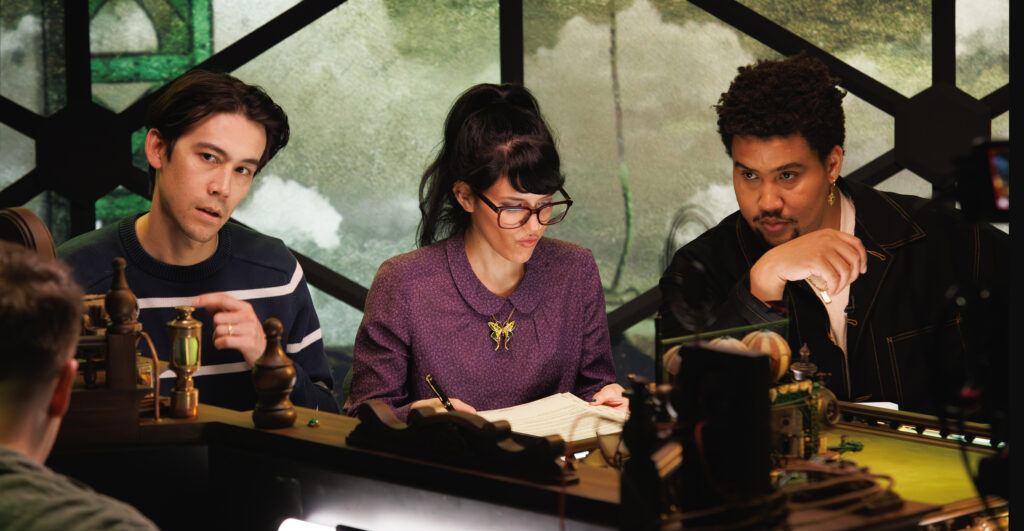
When someone else gets what you want and is wildly successful, you’re in a cognitively difficult position; if you don’t think they deserve it, the unfairness feels compounded, and you’re on a slippery slope to a bitter hell from which there is no escape, only torment as you watch the meteoric rise of a no-talent piece of shit.
However, if you encounter someone who is successful, and talented, and hardworking, and who was in the right place at the right time with the right support, and they seem authentic, and nice, and they even seem to share a lot of your personal values, then something truly, exquisitely shitty happens.
You’re forced to heal, and if you’re really unlucky like me, maybe even to grow.
Our Lord and Savior
In the time that my Eye of Sauron was fixed on my two little hobbits, D&D-as-entertainment skated past the largely amateur, mostly homebrew primordial streaming stage and was already engrossed in inauthentic professional opportunism. There were some manifestly unlikable characters at the fore to those with eyes to see and a professional abscess to nurse, so it was feeding my growing resentment, and I wasn’t sure I was really ever going to get over it.
Worst of all, this negativity was seeping into my beloved hobby. My lifelong joy. I was playing D&D with my kids, now! I was back into it, and everywhere I turned, this one guy’s smug face and bland brand was constantly rammed up my ass, as though designed to piss me off.
See, the human ugliness of this is that part of a bitter mindset is, upon seeing other people succeed at the thing you wanted the most, is that you think, “Well, if it isn’t going to be me, then whoever it is needs to be unreasonably perfect.”
Enter Brennan Lee Mulligan.
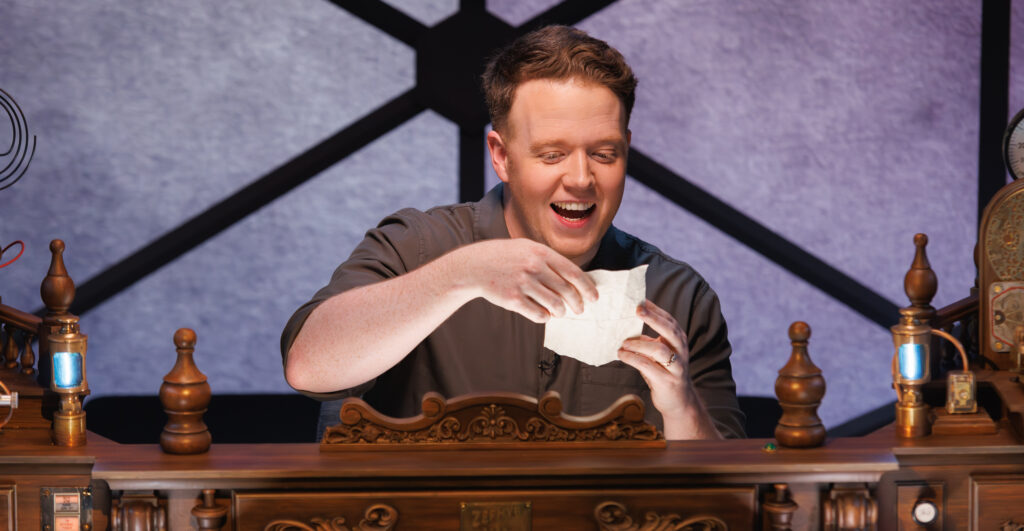
When I first saw Dimension 20, it was like cold water splashed on my face. It was well produced (and on a set that I found weirdly reminiscent of You Can’t Do That On Television), but not overproduced. The players were clearly engrossed in the story and while certainly hamming it up, seemed to be enjoying playing D&D rather than acting on a show about playing D&D.
And the host had this incandescent toddler energy (complimentary), genuine enthusiasm for the game, and a backstory that not only sets him up perfectly to be right where he is, but resonates with loving support rather than reeking of privilege.
It’s 2025, and I’m generally wary of anyone who more than ten people have heard about. I don’t know Brennan personally, and I don’t know anyone who does. I don’t have a pleasant convention elevator anecdote. In the absence of personal interaction, I’m forced to draw conclusions based on what I can observe.
Here’s what I do know:
Brennan runs a story- and player-experience-focused game that I find highly relatable. He is performing Dungeons and Dragons to be sure, but within the context of the game itself. He is performing, but then aren’t we all, for each other?
His inscrutable improv skills and flexibility as a storyteller allow him to embody who is needed and to allow his players to shape the story in ways that are engaging and interesting.
His grasp of drama allows for big laughs and tearjerking moments by turns that always manage to feel unscripted and authentic. They’re like moments you might have at your own table, just a little more polished and a little better lit.
He’s a successful and highly visible white guy who has used his platform to elevate and promote a huge diversity of talented but underexposed comedians and content creators without ever centering himself for doing so. For my money, that’s really walking the fucking walk.
As far as I can tell, Mr. Mulligan is where he is because of a combination of genuine enthusiasm, serious work ethic, a sincere and generous disposition, and generally caring about the experience and well-being of people around him.
Without knowing him, I can’t say that he is a good person, but I can say with some confidence that he cares about being a good person, and I think that’s as close as I can possibly get.
Brennan is ten years younger than me. He dodged a cultural bullet. His mom introduced him to D&D when he was 9, and when I was 9, my mom beat my ass and threw away my first Player’s Handbook. Brennan’s life trajectory brought him to right here, right now. I did nothing to set myself up for a job like that because a job like that wasn’t (as a matter of culture or technology) possible yet.
If it’s been difficult to read about this sort of bitterness, a soupçon of regret, and if you’re feeling ungenerous, maybe even entitlement, rest assured that it is uncomfortable to talk about, but I think it’s worth doing because I know I’m not the only person who lived through a personal hell in the 80s, only to watch as the very thing you had your ass kicked for is celebrated, appropriated, and at times, it feels, even rubbed in your face.
I also know that “weird D&D kid” is far from the most oppressed class in American history. Whatever else happened to me, I was still cis, and still white, and what didn’t happen to me because of those things is also on my mind whenever I try to feel sorry for myself.
But stick with me just a few minutes more. This morose, bittersweet tale has a happy ending. I think. I hope.
Dungeons and Dragons Isn’t A Game You Win
I started watching Dimension 20 first to bitterly assay the ways in which it must inevitably suck. Then to petulantly acknowledge that it wasn’t what I expected, and then to arrogantly admire that it was “done the way I would have wanted it to be done.” Finally, as a genuine fan and enjoyer.
In order to like D20 and Brennan, I had to deal with the fact that I was never going to be a Brennan. And Brennan actually made that really easy, because I started to feel like maybe the hobby, maybe tabletop roleplaying in general, and the impact it was going to have on new players, was going to be okay.
Don’t get me wrong, there are people out there still very visibly doing things that I think are opportunistic and cynical, and who create poor and unreasonable expectations for both players and Dungeon Masters without providing any tools with which to negotiate a reasonable and pleasurable experience for everyone at the table. They don’t provide those tools because they don’t have those tools, because they ain’t us.
But many of the positive things I have to say about Brennan Lee Mulligan and D20 and the visionary people involved in producing it, I can also say about Matthew Lillard and his show Faster, Purple Worm! Kill! Kill! and production efforts. I could say that about many of their cast and crew and the talented people they find and promote.
There are good people out there doing this and creating communities and positive impacts and making the kind of racist comic book store backroom grognards I grew up with burning mad, and that’s pretty great.
Seeing people make a living playing D&D brought up a lot of resentment, and it wasn’t with these apparently wonderful people, or even the people I don’t like. It was with my abusive parents. It was with my players – my friends – who took me for granted. It was with myself for listening when person after person after person said “No.”
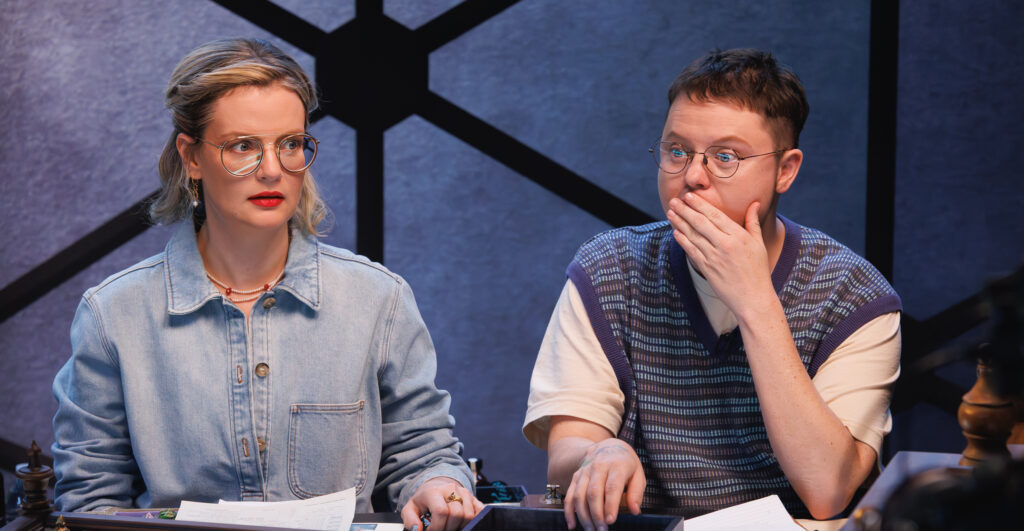
Dimension 20 helped me reconnect with why I wanted to do this professionally in the first place – I love telling good, engaging stories and creating experiences for people. I wanted to be an ambassador for something I love.
And I am. Maybe I can’t be Brennan, but I can be Brennan’s mom, when I introduced my 8 and 9 year old to D&D for the first time. That was two years ago, and we still play our campaign every two weeks. I supply the books, the maps, the painted miniatures, the terrain, the lighting, the music, the voices, and yes, even the snacks. I am paid in their boundless enthusiasm, their outrageous hilarity, their courage, and their curiosity. It is the highlight of my life.
One of the first things I taught them is that Dungeons & Dragons isn’t a game that you “win.” You have your victories, yes! But getting your ass kicked is also part of it. Without some low points, you have nowhere to grow. And importantly, other heroes getting the prizes for their own adventures doesn’t harm you, because ultimately you’re all on the same side.
See, I knew all of this, but when it’s you getting your ass kicked it’s easy to lose sight of what you know and believe. Sometimes that’s part of it too. Sometimes forgetting and finding it again is the thing that helps move your character along.
I’ve had some grand adventures, multiclassed more often than was advisable, and got to do more things in and around the industry than most people ever will, and that’s while still nurturing projects and experiments, and chasing the butterfly of a creative career that somehow has always taken care of me without ever expressly saying it was going to.
If you needed to read this, I hope you did. And if you’re my therapist, we’ll probably circle back to some stuff. But as far as people professionally playing D&D are concerned: I’m genuinely, truly grateful that you get to do something I had always wanted to do. I am grateful that American civilization, for all its hideous warts, progressed at least enough to make that possible.
I’m grateful that when my children look at me with excitement and wonder in their eyes at peak dopamine at the end of a killer session and impulsively ask, “Dad! Can I get a job playing Dungeons & Dragons?” I can say:
“Shit. I don’t know. Maybe!”
